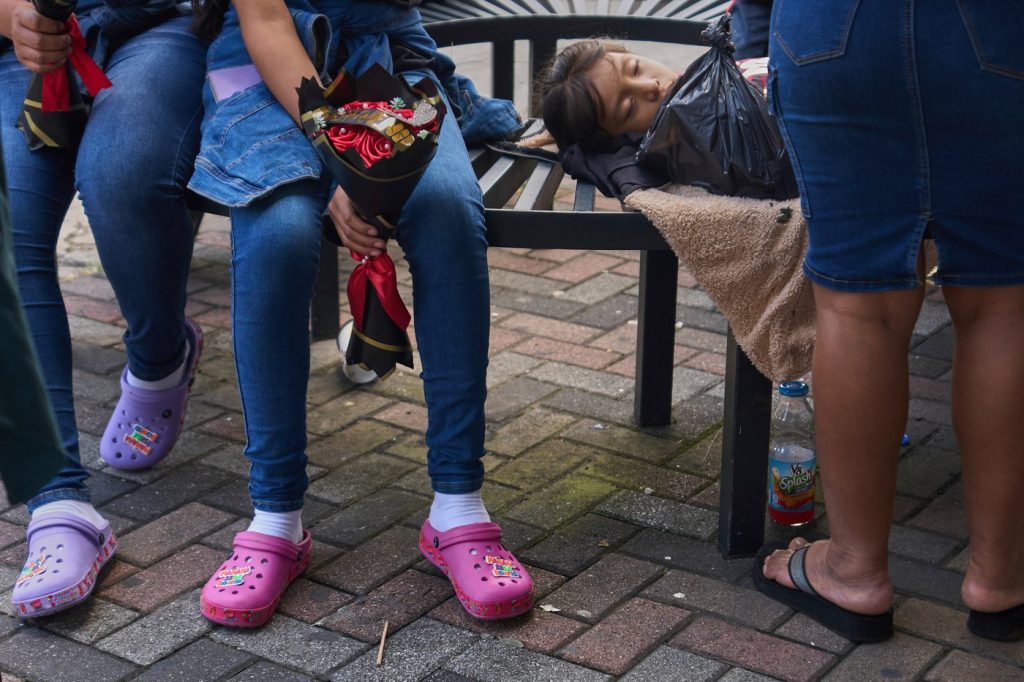McALLEN, Texas (AP) – The Trump administration has implemented new requirements for parents seeking to reunite with their children who have crossed into the U.S. alone. Parents are now mandated to attend interviews where immigration officers may question them, as outlined in a policy memo obtained by The Associated Press. This shift has raised concerns among legal advocacy groups, many of whom report that some parents have been arrested during this process while their children remain in U.S. custody.
The U.S. Department of Homeland Security has not confirmed any of these claims or provided specific comments regarding the implications of the July 9 directive. Instead, they referred to challenges faced by the Biden administration in effectively vetting and monitoring homes where children are placed. The directive was issued by the Office of Refugee Resettlement, part of the U.S. Health and Human Services Department, primarily aimed at ensuring that sponsors, usually parents or guardians, are adequately vetted.
This July 9 memo, first reported by CNN, stipulates that sponsors must now appear in person for identity verification. Previously, they had the option to submit identity documents online. The directive also warns that "federal law enforcement agencies may be present" during these interviews to fulfill their mission objectives, which could include questioning the sponsors.
Neha Desai, managing director of human rights at the National Center for Youth Law, expressed concern that the new policy inherently provides U.S. Immigration and Customs Enforcement (ICE) with opportunities to arrest parents who show up for these identity checks. Mary Miller Flowers from the Young Center for Immigrant Children's Rights highlighted a specific case where an immigration officer arrested a father of a child under 12 during an identification check, leading to fears among parents about seeking necessary reunification.
Desai further noted that the interviews are unlikely to yield new information for authorities, as vetting typically involves home studies and background checks conducted by Office of Refugee Resettlement staff—not immigration enforcement officials. The Office of Refugee Resettlement claimed that they communicate "clearly and proactively" with parents about possible interviews by ICE, asserting that refusing an interview will not affect decisions regarding their children's release.
Despite these assurances, concerns remain about the safety of potential sponsors. According to Desai, some sponsors experience fear regarding the interview process, yet many are still committed to pursuing the release of their children from custody. In defending its policy changes, the Trump administration has pointed to ongoing efforts to protect children released under the Biden administration, rather than addressing specific incidents of arrests.
Furthermore, a recent directive has permitted ICE to interview children while they are at government-run shelters. Advocates have mentioned that legal counsel for children often receives limited notice about these interviews and that children may not fully comprehend the interview's purpose, raising ethical concerns about consent.
Additional changes in policy have created hurdles for reunification, such as requiring fingerprinting for sponsors and any adults residing in the home where children are placed. There have also been calls for proof of income and DNA testing, leading to longer average stays for children in shelters. As of July, children were spending an average of 171 days in custody, which is a considerable increase compared to previous months.
Experts attribute these extended custody times to the new vetting policies and have criticized the Office of Refugee Resettlement for allegedly prioritizing immigration enforcement over its core mission of child welfare. The implications of these changes have stirred significant debate, emphasizing the urgent need for clarity and compassion in the reunification process for vulnerable children and their families.












